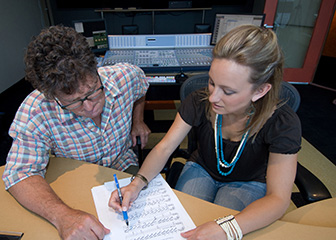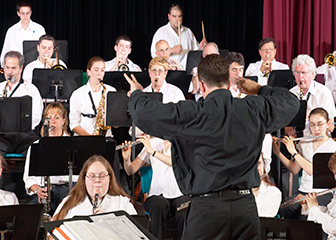Summary

| Quick Facts: Music Directors and Composers | |
|---|---|
|
$45,970 per year
$22.10 per hour |
|
| Bachelor’s degree | |
| 1 to 5 years | |
| None | |
| 93,200 | |
| 10% (About as fast as average) | |
| 9,600 | |
What Music Directors and Composers Do
Music directors (also called conductors) lead orchestras and other musical groups during performances and recording sessions. Composers write and arrange original music in a variety of musical styles.
Work Environment
Some music directors and composers work in religious organizations, concert halls, or recording studios. However, many are self-employed.
How to Become a Music Director or Composer
Education and training requirements for music directors and composers vary. Conductors for a symphony orchestra typically need a master’s degree, but a choir director may need a bachelor’s degree. There are no educational requirements for those interested in writing popular music.
Pay
The median annual wage of music directors and composers was $45,970 in May 2010.
Job Outlook
Employment of music directors and composers is expected to grow by 10 percent from 2010 to 2020, about as fast as the average for all occupations. Increases in demand for musical performances are expected to lead to employment growth. However, strong competition for jobs is anticipated because of the large number of people who are interested in this field.
Similar Occupations
Compare the job duties, education, job growth, and pay of music directors and composers with similar occupations.
O*NET
O*NET provides comprehensive information on key characteristics of workers and occupations.
Contacts for More Information
Learn more about music directors and composers by contacting these additional resources.













